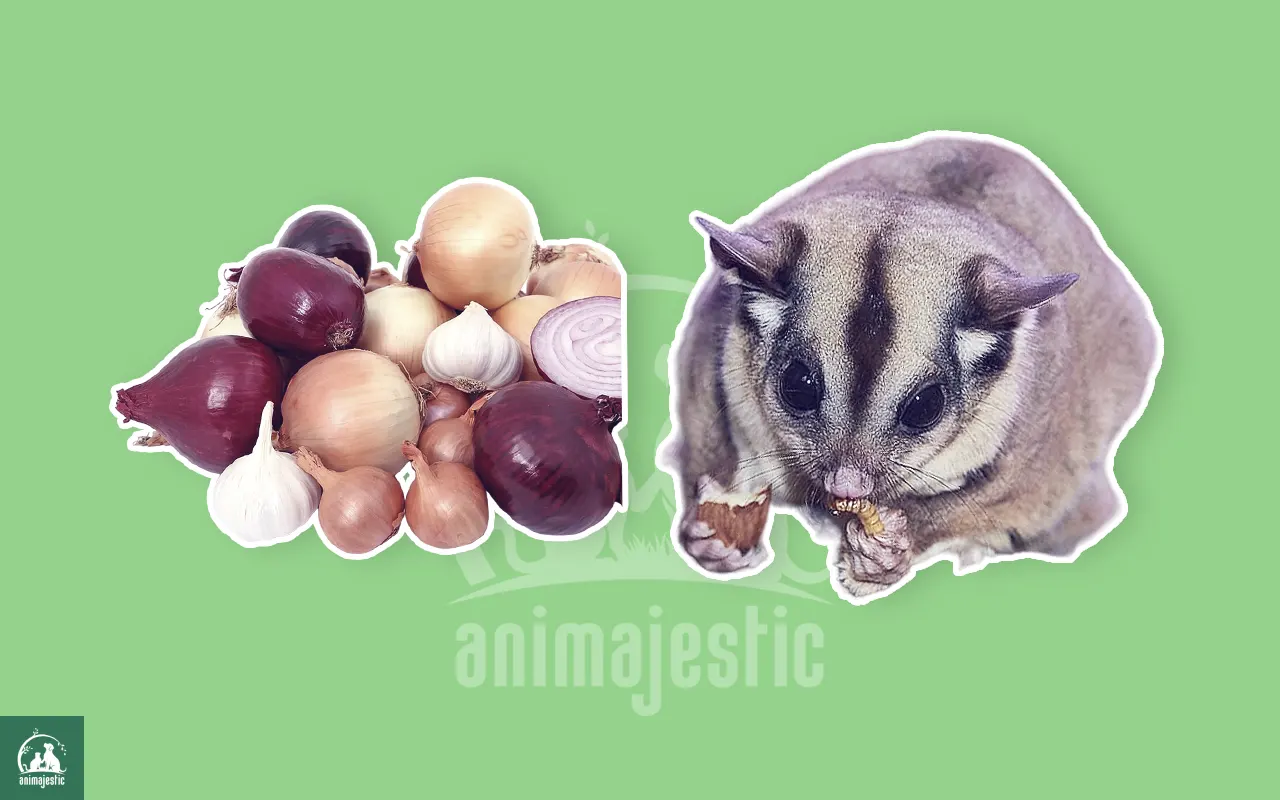As the popularity of sugar gliders as household pets continue to grow, ensuring their health and happiness becomes a critical concern for many new and experienced owners alike.
One of the cornerstones of pet wellness is their diet, and for sugar gliders, this can mean the difference between a thriving and content companion and a sick or stressed one.
Today we are looking into the much-debated question: Can sugar gliders eat onions? and we will explore the repercussions, debunk some myths, and offer some practical alternatives.
The Rising Popularity of Sugar Gliders
Sugar gliders, the small marsupials native to Australia and New Guinea, are capturing hearts around the world. Famous for their captivating appearance, endearing behaviors, and unique gliding ability, they have rapidly gained traction as popular pets in homes across the globe. As with any pet, learning about proper care is essential, and understanding their unique dietary needs is paramount to providing optimal care.
What Do Sugar Gliders Eat in the Wild?
A deep understanding of their wild counterparts’ natural dietary habits is fundamental in creating the right nutritional plan for a sugar glider at home. Their wild diet comprises:
- Tree sap, nectar, and eucalyptus gum
- A variety of fruits
- Insects and smaller vertebrates
- Foliage from native plants
As pets, it is crucial to replicate this diet to ensure they receive the necessary nutrients. A balanced sugar glider diet should include:
- A commercial sugar glider pellet or nectar mix
- Fresh fruits and vegetables
- Live insects (such as crickets or mealworms)
- Occasional treats like yogurt drops or unsweetened cereals
Debunking the Onion Myth
The harsh reality is that onions can pose a significant threat to the health of sugar gliders. Onions are rich in compounds and chemicals that, while harmless to humans, can be extremely harmful to sugar gliders and other animals. The following sections outline the primary dangers onions present.
Hemolytic Anemia: A Potential Killer
Onions contain organosulfides, which wreak havoc on a sugar glider’s red blood cells, leading to a disorder called hemolytic anemia. This condition results in the destruction of red blood cells, causing life-threatening consequences if left untreated. Moreover, sugar gliders’ small size and specialized metabolism make them particularly susceptible to these compounds’ toxic effects.
Beware of Gastrointestinal Issues
Onions can also cause a series of gastrointestinal upsets in sugar gliders, such as:
- Nausea
- Vomiting
- Diarrhea
These symptoms can lead to dangerous dehydration, electrolyte imbalances, and further complications in the health of your sugar glider.
Metabolic Roadblocks and Onion Toxicity
Another critical concern is that sugar gliders lack the necessary enzymes to break down the organosulfides present within onions effectively. This inability can result in the buildup of toxic by-products within their systems, leading to health issues and even death.
Importance of Proper Consultation
Due to these severe consequences, it is absolutely crucial to consult with an experienced veterinarian specializing in sugar gliders before altering or adding new foods to their diet.
Safe Vegetable Alternatives for Sugar Gliders
The key to a healthy sugar glider diet is offering diverse and nutritionally balanced options. To provide your pet with a mix of safe and beneficial vegetables, consider including:
- Leafy greens (spinach, kale, collard greens)
- Bell peppers (all colors)
- Sweet potatoes
- Carrots
- Broccoli
- Green beans
Always remember to thoroughly wash and chop the vegetables into small, bite-sized pieces for easy consumption by your sugar glider.
Conclusion
Feeding onions to sugar gliders poses significant risks to their health and well-being and the short answer you have been looking for to the question is a capital NO. Onions contain organosulfides, leading to hemolytic anemia, gastrointestinal issues, and potentially fatal consequences.
To ensure your sugar glider remains healthy and happy, provide a balanced diet that includes a mix of safe fruits, vegetables, insects, and specialized sugar glider food.
Consult with a qualified veterinarian specializing in sugar gliders if you have any concerns about your pet’s diet or overall health, and always be cautious when introducing new foods into their meal plan.
